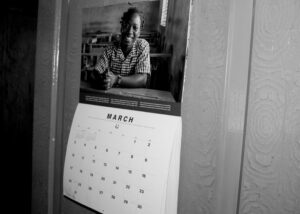Giving and receiving are complicated transactions
Re: “God loves a cheerful receiver,” Jan. 4, page 9.
When I receive a gift accompanied by a script dictating my response, I feel like returning that gift. I do not feel grateful; I feel controlled. That’s how I felt when I read Arnie Friesen’s “God, Money and Me” column.
Friesen tells us that reciprocity, saying “You shouldn’t have,” or paying for gas are forms of “pride,” “legalism” or “ingratitude.” I see them differently; these are just our social norms.
Giving and receiving are much more complicated than this column suggests. Gifts that control the receiver, or leave the recipient feeling indebted or dependent, are not about the “generous attitude of the giver.” Such gifts take more than they give.
Not reciprocating quickly typecasts recipients as dependents, as “people who have enjoyed the gifts of others as a way of life.”
If we have always been only the giver, but rarely or never the typecast recipient who has had to relinquish choices, decision-making and reciprocity, how can we know what that rigid role does to a person? Ken McCluskey, dean of education at the University of Winnipeg, told CBC Winnipeg’s Information Radio that always being the “helpee” and never the helper is subtly dehumanizing.
Decision-making encourages people to exercise their ability to manage their lives. Winnipeg’s Siloam Mission lets homeless people choose clothes from a rack of donated items. Winnipeg’s Agape Table offers people an inexpensive breakfast with choices. Providing options offers opportunities to transition from helplessness to responsible living. It also offers these customers the “right to demand very specific products.” They can expect their decisions to be honoured.
Reciprocity and decision-making are as vital to a person’s physical, mental and spiritual health as gratitude. A hymn asks, “Will you let me be your servant?” ending the verse with, “Pray that I may have the grace to let you be my servant too.”
Ruth Enns, Winnipeg
Remembrance Day and the poppy
Re: “Editorial misrepresents Remembrance Day and the poppy,” Jan. 4, 2016, page 10.
For most of us Remembrance Day evokes nostalgic memories of soldiers who lost their lives in WWI and following wars. They were often celebrated as heroes who “laid down their lives for our freedom,” even though no other country attempted to take away our freedom. Others remember this day for all the people who died in war including “enemies” and civilians.
Some of us veterans and soldiers have mixed memories of war. Many of us were drafted to fight in the war, with no alternatives. We were trained in the skill to kill and sent to the battlefield to apply it. We remember the horror of war, the killing or maiming of soldiers and often innocent civilians and the destruction of their habitat.
Then and now we have to deal with our conscience. We were ordered to kill other human beings “created in the image of God,” because they wore a different uniform than we.
We live with that memory and don’t want to be celebrated for it, and therefore might have a reluctance to wear a poppy. I wish and pray that a time will come when we will live in peace with each other and will not need to wear a poppy or a peace button.
American General Sherman once said, “I am sick and tired of killing; war is hell.”
Helmut Lemke, Vancouver, B.C.
Diversity a sign of health
When I was a volunteer in 2011 with the Social Planning Council Kitchener-Waterloo we worked in collaboration with the University of Winnipeg Disability Studies at developing an alternative planning/evaluation tool focusing on respect and inclusion. To illustrate how social programs could be planned or evaluated, we used the metaphor of a prism through which white light enters, re-emerging on the other side in a full spectrum of colours. Diversity was seen as the ideal when planning or evaluating a social project.
Can this experience speak to the feature article, “The challenge of diversity: A call for discernment and transformation,” in the Jan. 18 issue of Canadian Mennonite? In the Social Development Centre model, diversity is seen as an indicator of health. Could we witness to the diversity in the Mennonite church and re-imagine transformation on the meaning of unity?
Just as a rain forest supports a rich diversity of life, could a church that accepts congregations with a range of attributes be seen as whole and healthy? A vision of unity, because of diversity, would be worthy of discernment.
Myron Steinman, Kitchener, Ont.
LGBTQ acceptance in Mennonite churches continues to grow
About three years ago I remarked that it was inevitable that Mennonite congregations would all accept and welcome lesbian/gay/bisexual/transgender/queer (LGBTQ) people. The remark was based on what was happening in our congregations then and is continuing to happen now.
Also, consider that all our children and grandchildren, for the last generation and more, have been taught that every person must be accepted and respected. They are being taught this from nursery school, kindergarten and up through high school graduation. After graduation, these students will enter the workplace or college and continue to get to know and respect people of many religions, skin colours and sexual orientations.
Many, perhaps most, people 45 and under cannot really understand why some of their parents and churches do not want them to accept LGBTQ people in church.
Of course, many of us who are 45 and older also accept these people in church, at work and play, and socially. Perhaps by now Mennonites who do not want to accept LGBTQ people are a relatively small minority. If not yet, then perhaps it won’t be much longer.
Jim Suderman, Winnipeg
Love more important than structures
I read Canadian Mennonite fairly regularly and appreciate the content and the efforts that go into presenting articles that represent our experience as Mennonites. But at the end of day we are really not different from Lutherans, Catholics, Muslims, Buddhists or atheists, in our desire to want to raise kind and compassionate children who see all life as worthwhile. The structures we impose on our beliefs are what trips us up.
I always envision Jesus and his Father looking down on us and thinking, “Why don’t they get it?” It’s so easy. John 15:12-17 includes the ultimate commandment to “love one another as I have loved you.” It is hard but it is necessary. No structure, format or committee required.
Paulette West, New Hamburg, Ont.








Leave a Reply
You must be logged in to post a comment.